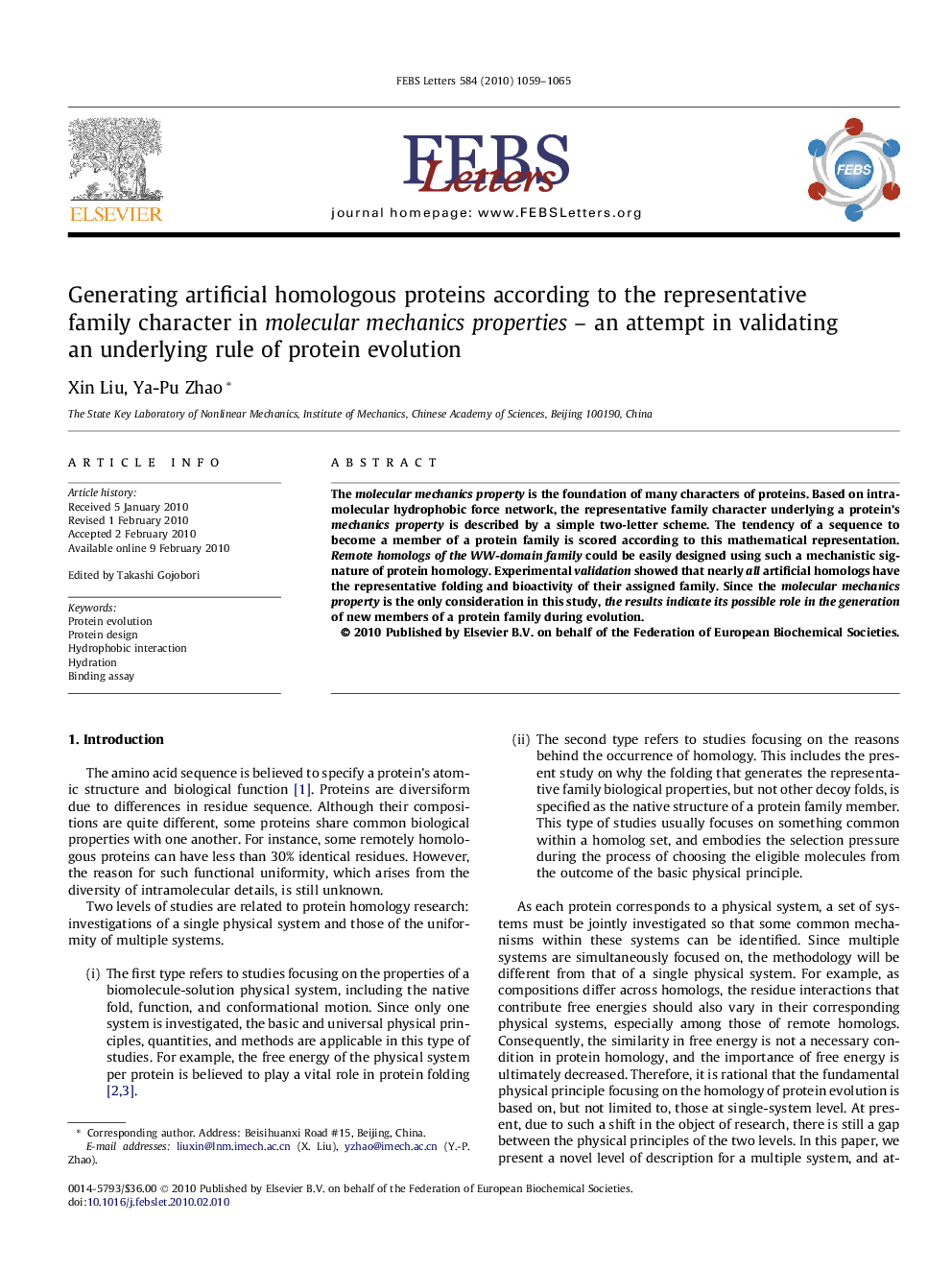| Article ID | Journal | Published Year | Pages | File Type |
|---|---|---|---|---|
| 2049433 | FEBS Letters | 2010 | 7 Pages |
The molecular mechanics property is the foundation of many characters of proteins. Based on intramolecular hydrophobic force network, the representative family character underlying a protein’s mechanics property is described by a simple two-letter scheme. The tendency of a sequence to become a member of a protein family is scored according to this mathematical representation. Remote homologs of the WW-domain family could be easily designed using such a mechanistic signature of protein homology. Experimental validation showed that nearly all artificial homologs have the representative folding and bioactivity of their assigned family. Since the molecular mechanics property is the only consideration in this study, the results indicate its possible role in the generation of new members of a protein family during evolution.
